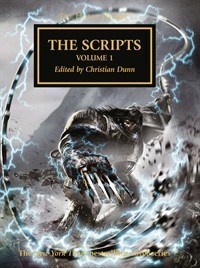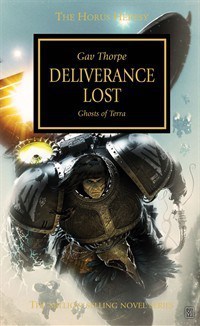We Need to Talk About Corax
Apologies for the post title, but it was the best I could come up with…
[image error]
Why “Corax:”? Because there are more to come…
Today (1800 GMT, in fact) my latest novella goes on sale. Corax: Soulforge is a Horus Heresy story in which I revisit the Raven Guard after recent time spent with the Dark Angels.
The situation is dire for the Imperium. The galaxy is torn in two by the Ruinstorm, the Space Wolves and White Scars are currently MIA while the Imperial Fists fortify Terra. Of the other legions, only scant information is available. Having chosen to bring the fight to Horus and his forces, Corax and his legion are waging planetary guerrilla warfare to slow the Warmaster’s advance.
This concept is central to the character of Corax. His legion is all but wiped out, but he will fight on to the last warrior if necessary. All of the Primarchs are driven by their past and their upbringing, and in Soulforge I’ve been able to look again at Corax’s motivations. Here’s my thoughts.
Coming to maturity amongst political prisoners has given Corax a strong ideology that drives everything he does. More than any of his brothers, Corax sees himself as a liberator. First, as the saviour of Deliverance. Second, as a commander of the Emperor freeing the galaxy from the darkness of the Long Night. He does not see himself as a conqueror, though he has conquered worlds. He does not desire dominion over the people and territories he has brought to compliance and, perhaps foremost amongst the Primarchs, was ready and willing to relinquish power to Mankind. Corax planned to compose a political treatise that would do for governance what Guilliiman’s Codex would do for warfare.

Now you can read the Raven’s Flight script too.
With the treachery of Horus threatening to bring back the darkness once more, Corax has found new determination and a fresh purpose for war. He knows better than most the sacrifices required for victory, and although he values life highly he is far from a pacifist. Innocents will die, but Corax believes in his cause and hardens himself to their deaths. A greater aim drives him, allowing him to put aside the tragedies he must unleash in order to achieve that higher goal. As he says himself in Soulforge, “War is simply a series of intentional catastrophes”.
Yet for all this, Corax holds back from a total ‘ends justify the means’ approach. It is this that separates him from the likes of Konrad Curze, the Night Haunter who has plagued his thoughts since their confrontation on Isstvan V. It is a hard path to tread, and perhaps is one that brings Corax and his legion more grief than necessary. Corax often chooses the harder road to tread, preserving the lives of those he has sworn to protect in favour of his own warriors, holding back from bombardment and annihilation for fear of causing too much collateral damage.

He gets all the cool covers.
One might think that he is perhaps testing his own resolve at every opportunity, seeking to assure himself that the vainglory, selfishness and arrogance that has seen the fall of the greatest Primarchs does not exist within him. This leads to self-doubts, and ultimately a questioning of everything he has done in the name of the Emperor.
On the other hand, Corax is well aware that he stands apart from humanity. He is not a mortal, something made very apparent by his own unnatural abilities and the status of saviour that was given him by the downtrodden of Lycaeus. He is a creature far removed from the humans that he protects, and while he may try to disguise his nature for the most part he cannot deny it. It is in believing himself different but not better that he attempts to reconcile this separation.
During Soulforge Corax will have to confront these issues if he is to succeed. We’re still a long way from that fateful ‘Nevermore’ moment, but in Soulforge we get to see a bit more of the journey that will take us there.





